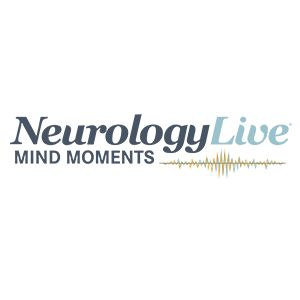
Headache and Migraine
Latest News
Latest Videos

CME Content
More News

As neurologists and other specialists may increasingly be called upon to serve as general hospitalists in the wake of the COVID-19 pandemic, keeping health care workers healthy becomes paramount.

The oral calcitonin gene-related peptide receptor antagonist was approved in late February and comes in 8-tablet packs for treatment of 8 migraine attacks with a single, 75-mg dose.

Neurology News Network for the week ending March 14, 2020.

Our patients have a huge need for access to specialists, yet unfortunately, there is a huge shortage of headache specialists.

A proof‐of‐concept assessment showed that women with chronic migraine and insomnia can be reasonably treated with digital cognitive behavioral therapy for insomnia, with data suggesting it may improve both conditions.

The report suggests with moderate certainty that all 3 therapies offer a small or substantial net health benefit and with a high certainty of at least a small net health benefit.

Neurology News Network for the week ending March 7, 2020.

The drug’s Prescription Drug User Fee Act date is set for October 20, 2020.

NeurologyLive's editor in chief Stephen D. Silberstein, MD, discussed the ways to optimizing patient care.

Neurology News Network for the week ending February 29, 2020.

Rimegepant, the only orally disintegrating anti-CGRP tablet, marketed as Nurtec ODT, will be available in a 75-mg dose.

Eptinezumab, Lundbeck’s intravenous monoclonal antibody that will be marketed as Vyepti, will become available for prescription in April 2020 with a recommended dose of 100 mg quarterly.

Two new classes of medications have quickly expanded the pool of available treatment options for patients with migraine, who now have more power than ever to choose the treatment that fits them best.

Eptinezumab, Lundbeck’s intravenous monoclonal antibody that will be marketed as Vyepti, will become available for prescription in April 2020 with a recommended dose of 100 mg quarterly.

Neurology News Network for the week ending February 22, 2020.

The model may help clinicians enact preventative measures for those with migraine with aura at an early stage.

The chronic migraine preventive, despite falling short of efficacy end points, was safe and well-tolerated in a small cohort of patients aged 12 to 17 years.

When compared with placebo, prophylactic pharmacologic treatments showed no significant long-term effects in pediatric patients with migraine.

Compared with healthy individuals, those with cluster headache are significantly more likely to experience sickness absence and disability pension days, with women more impacted than men.

Neurology News Network for the week ending February 8, 2020.

The director of headache services at NYU Langone discussed the 2019 American College of Emergency Physicians guidelines on acute nontraumatic headache in the emergency department.

Join NeurologyLive and the Women Neurologists Group on Twitter to celebrate women in neurology on National Women Physicians Day.

Neurology News Network for the week ending February 1, 2020.

The drug will be available in 50 mg and 100 mg oral tablets in pharmacies across the US in the coming days.

Teva announced that the Ajovy autoinjector is expected to be available to patients in the coming months.


















